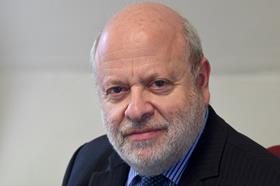The Gazette reported last week on the judgment in the case of Haddad v Rostamani & Ors, which was delivered at the beginning of this month.

In that case, the claimant made claims that Allen & Overy, Clyde & Co, three senior solicitors, two leading counsel and three junior counsel had all dishonestly conspired to make him lose a partnership dispute in 2021. We need not bother with the complicated facts (the claimant lost). What is interesting is that the High Court judge who delivered the decision, Mr Justice Fancourt, took some time to describe the duties of lawyers. Serious allegations had been made against them – but, interestingly, what he said runs against the drift of current debate and policy in relation to our duties to clients.
It is worth quoting some of the passages in full. They appear under a heading in the judgment called ‘The role of English litigation lawyers’:
On the one hand, ‘A lawyer may not make an allegation of fraud or of comparably serious misconduct, such as conspiring to cause harm by acting unlawfully, unless they have distinct instructions from their client to make that allegation and there is evidence capable of supporting a finding of fraud or impropriety.’ That comes as no surprise.
But, on the other hand, ‘Importantly for present purposes, a lawyer does not owe the court or another party to the case any duty to investigate the facts, or to ascertain the truth, before advancing the factual case on behalf of their client. That is so even if they have doubts about the likelihood that what their client tells them is true … If the client’s case is a weak one, the Court will so decide.’
That is a surprise. Due diligence on a client is now so widespread, particularly in the area of money laundering. Lawyers are told not to take the client’s word for what they say, but to take reasonable steps to verify it (see the Solicitors Regulation Authority’s own guidance to this effect). If the lawyer has suspicions that the client is not telling the truth and that money laundering may be taking place, there is a duty to report behind the client’s back.
In the area of litigation as well – SLAPPs (or strategic litigation against public participation) is a good example - the SRA’s current guidance makes ‘The truth of the alleged defamatory statements’ its first example of what lawyers should take into account when taking ‘reasonable steps to satisfy yourself that a claim is properly arguable before putting it forward’. But, according to the court, there is no duty on a solicitor to investigate the facts or ascertain the truth before advancing the factual case on behalf of the client. Which statement rules?
The SRA believes that it is able to go further than statements in legislation or jurisprudence (of course, it could not advise lawyers to breach them). It judges conduct against its own regulatory framework and standards. So, even though a court might decide one way, it can decide another.
Leaving the area of litigation, two instances of its distinct approach have been given in recent Gazette articles on its new fining powers.
In the first, when solicitors were convicted of drink driving offences, the SRA fined them five times and more than 31 times the amounts that they were respectively fined in the criminal courts (more than 31 times!).
In the second, a solicitor who apparently asked his firm’s client to pay money to him privately and tell the court that she was a litigant in person (among other things), was subject to an agreed fine of £10,402, and not referred to the Solicitors Disciplinary Tribunal, contrary to the expectations of the author of the article. The fine was around the level of one of the drink driving fines referred to above and a few thousand less than the other.
Of course, we should be careful not to mix different areas: litigation, money laundering regulations and the SRA’s fining powers. The court judgment solely concerned lawyers’ litigation duties, where the court said that it was the responsible party for deciding weak cases. Money laundering already has its own due diligence rules, whether we like them or not.
But the direction is interesting, and not just for SLAPPs (which are again under the spotlight because the government is considering extending the anti-SLAPP provisions of the Economic Crime and Corporate Transparency Act to be of more general application, through a Private Member’s Bill currently before parliament).
On the one hand, solicitors face obstacles in becoming KCs and being appointed as judges. But, on the other, according to the SRA and the general direction of public policy, we are nevertheless more than good enough to be judge and jury of our clients’ veracity in advance of taking action.
Many solicitors may take comfort from Mr Justice Fancourt’s remarks, restricted to litigation, that it is for the court to decide the truth of the client’s case.
Jonathan Goldsmith is Law Society Council member for EU & International, chair of the Law Society’s Policy & Regulatory Affairs Committee and a member of its board. All views expressed are personal and are not made in his capacity as a Law Society Council member, nor on behalf of the Law Society































7 Readers' comments